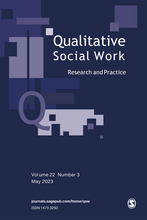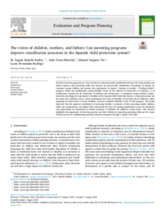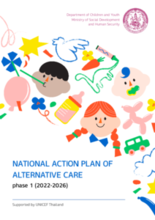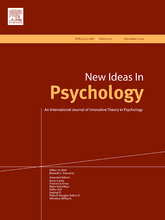Displaying 1591 - 1600 of 14557
Institutional rearing negatively impacts the development of children's social skills and executive functions (EF). However, little is known about whether childhood social skills mediate the effects of the foster care intervention (FCG) and foster caregiving quality following early institutional rearing on EF and social skills in adolescence. Participants included abandoned children from Romanian institutions
As a therapist for children who are being processed through the American immigration system, Cynthia Quintana has a routine that she repeats each time she meets a new patient in her office in Grand Rapids, Michigan: She calls the parents or closest relatives to let them know the child is safe and well cared for, and provides 24-hour contact information.
Luiza Baloh left her home in Dnipro, central Ukraine, in March. Fleeing the constant sound of explosions, she and her five children came to the Czech Republic hoping to find refuge. Instead, they found themselves behind a barbed wire fence in a repurposed immigration detention center that was, she says, dirty and full of strangers, some of whom were aggressive towards her and her children.
This paper presents the findings of a study in the Australian state of Victoria where a group of lived experience consultants (LECs) were employed to consult on the results of a broader survey of the attitudes of professionals, carers and care leavers regarding the educational experiences of children in out-of-home care.
Coverage of the conflict in Ukraine has been a stark reminder of the pace and extent to which war turns lives upside down. The terrifying experience of conflict sees people turning to loved ones and places that are familiar and comforting. Children are no different. And yet, even before the war in Ukraine started on 24 February, for over 100,000 Ukrainian children the familiar wasn’t a family environment, but an institution.
This research highlights the importance of involving parents and their children in improving parenting skills and the reunification process by implementing parental education programs through a unique work plan. This study examined the experiences of families in the Spanish Child Protection System.
Elli Oswald, Executive Director of the Faith to Action Initiative, reconsiders the best ways American churches can serve some of the world’s most vulnerable children and honor them as image bearers of God.
In July, Russian mortars rained down on a psychiatric home in northern Ukraine, while dozens of elderly and disabled residents were sleeping.
Flames soon swept through the facility’s dining room, and its dormitory and administration buildings were wrecked. Miraculously, only three people were injured. But it marks the latest in a series of deadly attacks in which some of Ukraine’s most vulnerable have been caught up in a savage conflict far beyond their control.
National Plan of Action on Alternative Care for Children Phase 1 (2022 - 2026) has been prepared to provide the direction of alternative care operations in Thailand that reflects the spirit of practices on alternative care for children in 5 areas:
There exists a gap in care leaving literature about the extent to which the labelling and stereotyping of care leavers during their time in residential care facilities affects their transitions into adulthood. This paper presents an analysis of interviews conducted with care leavers from six childcare facilities in Zimbabwe (n = 30).





